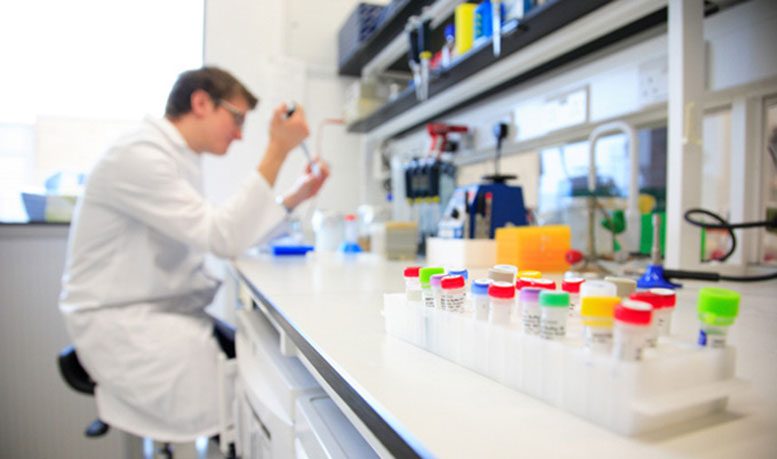
Researchers at Newcastle University show that a collection of small adaptations in proteins that respond to stress, accumulated over millennia of human history, could help to explain our increased natural defenses and longer lifespan.
Publishing in Nature Communications, the team of collaborators from the UK, France, and Finland and lead by researchers at Newcastle University, UK explain the importance of a protein called p62.
Many cells in our body, such as those which make up our brain need to last us a lifetime. To do this our cells have developed ways of protecting themselves. One way is through a process called autophagy, which literally means self-eating, where damaged components are collected together and removed from the cell.
This is very important as the accumulation of damage in cells has been linked to several diseases including dementia.
Lead author, Dr. Viktor Korolchuk explains: “As we age, we accumulate damage in our cells and so it is thought that activating autophagy could help us treat older people suffering from dementia. In order to be able to do this we need to understand how we can induce this cell cleaning.”
The importance of protein, p62
In this study the authors were able to identify how a protein called p62 is activated to induce autophagy. They found that p62 can be activated by reactive oxygen species (ROS). ROS are by-products of our metabolism that can cause damage in the cell. This ability of p62 to sense ROS allows the cell to remove the damage and survive this stress. In lower organisms, such as fruit flies, p62 is not able to do this.
The team identified the part of the human p62 protein which allows it to sense ROS and created genetically modified fruit flies with ‘humanized’ p62. These ‘humanized’ flies survived longer in conditions of stress. Dr. Korolchuk adds: “This tells us that abilities like sensing stress and activating protective processes like autophagy may have evolved to allow better stress resistance and a longer lifespan.”
Indeed, in the study, the authors found that specific mutations in human p62, which cause a neurodegenerative disease called amyotrophic lateral sclerosis (ALS), can prevent the activation of p62 by ROS. These cells are then unable to induce protective autophagy, and the authors explain that this could underlie the premature death of neurons in patients with this devastating age-related disease.
In contrast, ‘humanized’ p62 fruit flies did not live longer suggesting that other mechanisms may be required.
The research demonstrates that a collection of small adaptations like that of human p62 could have accumulated over time and these adaptations could underlie our increased natural defenses and longer lifespans.
The discovery of these adaptations allows a better understanding of how we can protect against and treat age-related diseases.
Reference: “Oxidation of SQSTM1/p62 mediates the link between redox state and protein homeostasis” by Bernadette Carroll, Elsje G. Otten, Diego Manni, Rhoda Stefanatos, Fiona M. Menzies, Graham R. Smith, Diana Jurk, Niall Kenneth, Simon Wilkinson, Joao F. Passos, Johannes Attems, Elizabeth A. Veal, Elisa Teyssou, Danielle Seilhean, Stéphanie Millecamps, Eeva-Liisa Eskelinen, Agnieszka K. Bronowska, David C. Rubinsztein, Alberto Sanz and Viktor I. Korolchuk, 17 December 2017, Nature Communications.
DOI: 10.1038/s41467-017-02746-z
Never miss a breakthrough: Join the SciTechDaily newsletter.